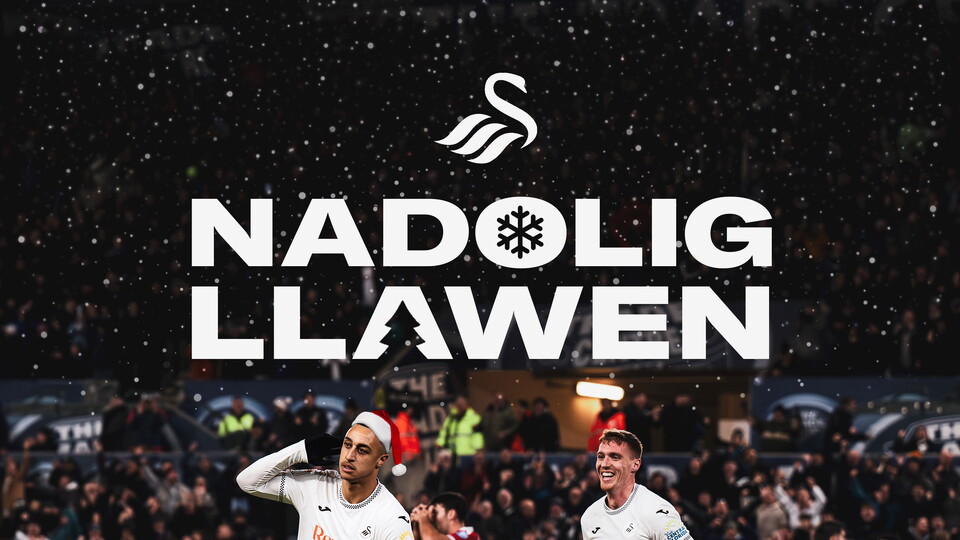Swansea City: The Premier League relegation run-in
Wed, 03/15/2017 - 07:00
Swansea City may be just a handful of wins away from Premier League survival despite their disappointment at Hull City last weekend.
The Swans have 27 points on the board as they head into the run-in - the last 10 games of the league campaign.
That tally puts Paul Clement's men within sight of the kind of final total which would be enough to ensure they remain in the top flight for a seventh successive season.
The Swans had reached the halfway point of the campaign with just 12 points to their name, with home defeats to West Ham and Bournemouth seeing out 2016.
Had that sort of point-to-game ratio been repeated in the second half of the season, the Swans may well have been cut adrift at the bottom of the table by now.
But the appointment of Clement at the beginning of January has inspired a significant improvement.
Having been four points adrift of safety when Clement met his new players for the first time ahead of the Crystal Palace game on January 3, the Swans now find themselves three points above the relegation places.
Clearly, there is still plenty of work to do.
But history suggests Clement's side may not now be that far away from securing their place among the elite for another year.
The Premier League is now in its 22nd season as a 20-team competition.
In the 21 complete campaigns, the lowest ever number of points required to finish a point above the bottom three was in 2009-10.
That year, just 31 points would have been enough to outdo Burnley, who went down in 18th place.
The survival line has not been that low either before or since, but the numbers indicate that the traditional 40-point safety target is a little higher than it should be.
Only four times in those 21 seasons, after all, has a tally of 40 or more been needed to avoid relegation.
Wolves finished one place above the drop zone in 2011 with 40 points, as did Everton in 1998, while Coventry finished 17th with 41 points in 1997.
The most demanding year of all was 2002-03, when West Ham were relegated despite banking 42 points.
Yet in the other 17 seasons, fewer than 40 points have been required to avoid the drop.
Last May, 38 points would have been enough to finish ahead of Newcastle, who went down in 18th.
In 2015, 36 points were enough for safety and 12 months before that a mere 34 would have preserved Premier League status.
So what is the average tally required to finish 17th over the last 21 Premier League campaigns? 36.85 points.
When he was appointed, Clement pointed to the West Brom team of 2004-05 - which featured his younger brother Neil - as an example of what can be achieved.
The Baggies were bottom at Christmas in that season, and looked like certainties to go down at that stage.
But under the guidance of Bryan Robson, West Brom completed what was then the greatest of Premier League escapes when they beat Portsmouth on the final day of the season.
Their points total after the Pompey win? Just 34.
Though there was a nod to his brother's achievement, Clement has refused to speculate about what might be required to stay up this season.
The Swans head coach has asked his players to focus on performances rather than points, and that approach has brought significant rewards thus far.
So many, in fact, that the ultimate target for Clement's team may not be that far away.
PREMIER LEAGUE 2016-17: THE RELEGATION RUN-INS
SWANS
March 18: Bournemouth (a)
April 2: Middlesbrough (h)
April 5: Tottenham (h)
April 8: West Ham (a)
April 15: Watford (a)
April 22: Stoke (h)
April 30: Manchester United (a)
May 13: Sunderland (a)
May 21: West Brom (h)
SUNDERLAND
March 18: Burnley (h)
April 1: Watford (a)
April 4: Leicester (a)
April 9: Manchester United (h)
April 15: West Ham (h)
April 29: Bournemouth (h)
April 6: Hull (a)
April 13: Swansea (h)
April 21: Chelsea (a)
TBA: Middlesbrough (a), Arsenal (a)
HULL
March 18: Everton (a)
April 1: West Brom (h)
April 5: Middlesbrough (h)
April 8: Manchester City (a)
April 15: Stoke (a)
April 22: Watford (h)
April 29: Southampton (a)
May 6: Sunderland (h)
May 13: Crystal Palace (a)
May 21: Tottenham (a)
MIDDLESBROUGH
March 19: Manchester United (h)
April 2: Swansea (a)
April 5: Hull (a)
April 8: Burnley (h)
April 17: Arsenal (h)
April 22: Bournemouth (a)
April 29: Manchester City (h)
May 6: Chelsea (a)
May 13: Southampton (h)
May 21: Liverpool (a)
TBA: Sunderland (h)
CRYSTAL PALACE
March 18: Watford (h)
April 1: Chelsea (a)
April 5: Southampton (a)
April 10: Arsenal (h)
April 15: Leicester (h)
April 23: Liverpool (a)
April 29: Burnley (h)
May 6: Manchester City (a)
May 13: Hull (h)
May 21: Manchester United (a)
TBA: Tottenham (h)
LEICESTER CITY
March 18: West Ham (a)
April 1: Stoke (h)
April 4: Sunderland (h)
April 9: Everton (a)
April 15: Crystal Palace (a)
April 23: Tottenham (h)
April 29: West Brom (a)
May 6: Watford (h)
May 13: Manchester City (a)
May 21: Bournemouth (h)
TBA: Arsenal (a)
BOURNEMOUTH
March 18: Swansea (h)
April 1: Southampton (a)
April 5: Liverpool (a)
April 8: Chelsea (h)
April 15: Tottenham (a)
April 22: Middlesbrough (h)
April 29: Sunderland (a)
May 6: Stoke (h)
May 13: Burnley (h)
May 21: Leicester (a)
WATFORD
March 18: Crystal Palace (a)
April 1: Sunderland (h)
April 4: West Brom (h)
April 8: Tottenham (a)
April 15: Swansea (h)
April 22: Hull (a)
May 1: Liverpool (h)
May 6: Leicester (a)
May 13: Everton (a)
May 21: Manchester City (h)
TBA: Chelsea (a)
BURNLEY
March 18: Sunderland (a)
April 1: Tottenham (h)
April 4: Stoke (h)
April 8: Middlesbrough (a)
April 15: Everton (a)
April 23: Manchester United (h)
April 29: Crystal Palace (a)
May 6: West Brom (h)
May 13: Bournemouth (a)
May 21: West Ham (h)



